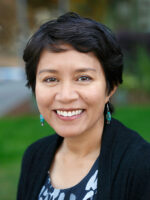Funding: R01AA027266
Project PI: Paul Gilbert
Principal Investigator: Paul Gilbert–University of Iowa | Co-Investigator: Nina Mulia
General population surveys have regularly found that less than one-quarter of adults with a lifetime alcohol use disorder (AUD) ever obtain treatment; nevertheless, the majority of those with AUD will achieve remission at some point. This phenomenon of untreated recovery (also known as natural recovery, spontaneous remission, and quantum change) has been long recognized but remains poorly understood. For example, several decades of research have confirmed its existence and even identified correlates; however, interventions to promote recovery outside of treatment have yielded equivocal or modest results, which are likely the result of unaddressed gaps, such as little knowledge of the meaning of recovery and the mechanisms of behavior change outside of traditional treatment services.
Guided by Stall and Biernacki’s conceptual model of spontaneous remission from compulsive behaviors and integrating processes of change from the Transtheoretical Model, this study will use mixed quantitative-qualitative approaches to identify the processes associated with recovery outside of treatment and test how recovery definitions relate to those processes and recovery outcomes.
Specific aims are:
(1) to characterize recovery definitions by treatment exposure;
(2) to identify the processes of recovery without treatment;
(3) to estimate the likelihood of sustained recovery and identify modifiable correlates to support recovery; and in an exploratory aim
(4) to investigate variation by subgroups.
First, a detailed online questionnaire will be administered to 1,500 adults with resolved problematic drinking drawn from Knowledge Panel (Ipsos Public Affairs; Norwalk CT), a pre-existing national probability sample. Respondents will be classified as in treated recovery (used specialty services, with or without 12-step groups), assisted recovery (used 12-step groups but not specialty services), or independent recovery (never used specialty services or 12- step groups), which will permit contrasts by level of intervention exposure (i.e., independent vs. assisted and treated recovery groups).
Under Aim 1, we will use Kaskutas and colleagues’ multi-dimensional What Is Recovery scale to quantify conceptualizations of recovery using cross-sectional baseline survey data (n=1,500).
Under Aim 2, we will conduct qualitative interviews with a purposive sub-set (n=80) of respondents in assisted and independent recovery to investigate the meaning of recovery, what guides the decision not to seek treatment, and how respondents initiate and maintain behavior change.
Under Aim 3, a subset of respondents in early recovery (<5 years; n=270) will be followed for 3 additional years, completing annual quantitative surveys to establish stability of recovery and identify factors associated with successful maintenance of recovery by group. Our long-term goal is to expand the repertoire of responses to problem drinking.
Findings may be used to develop and test novel low-threshold interventions to promote recovery among people who are unable or unwilling to seek specialty treatment services.







